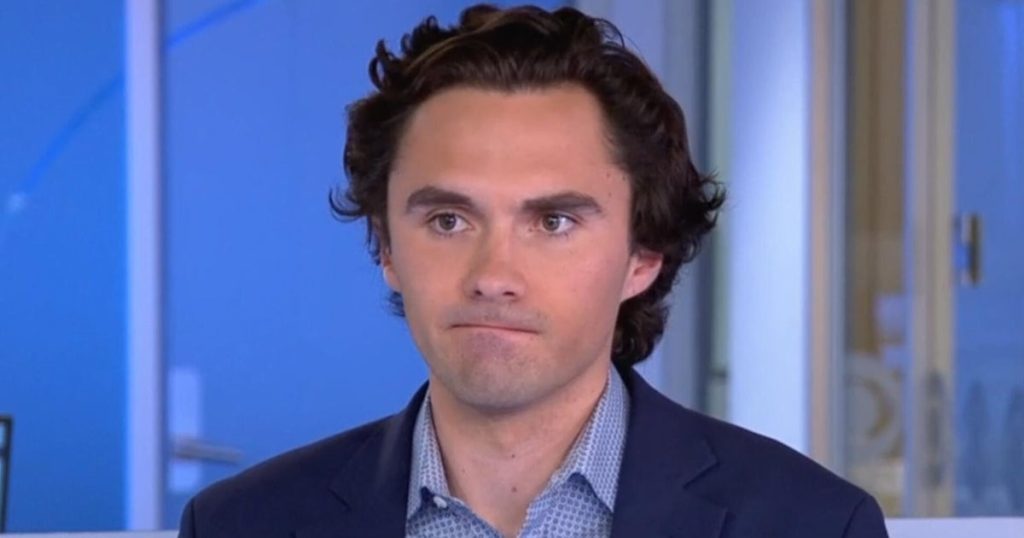Activist David Hogg has announced his departure from the role of vice chair at the Democratic National Committee (DNC) following a series of controversies surrounding his approach to party leadership. Hogg’s decision comes in the wake of a planned redo of the DNC’s vice chair elections, which follows significant criticism directed at his plan to challenge incumbent Democrats who he views as ineffective. With an emphasis on party focus, Hogg expresses his commitment to his initiative, Leaders We Deserve, as he steps away from the controversial position.
| Article Subheadings |
|---|
| 1) Hogg’s Departure from DNC Vice Chair Role |
| 2) Primary Challenges and Party Divisions |
| 3) Reception from Party Leaders |
| 4) Challenges Faced in the DNC Leadership |
| 5) Hogg’s Future and Party’s Direction |
Hogg’s Departure from DNC Vice Chair Role
On Wednesday, activist David Hogg officially announced his decision to step down from his position as vice chair of the DNC. This announcement followed months of controversy surrounding his intentions to support primary challenges against certain Democratic incumbents who he deemed as “asleep at the wheel.” The internal party conflict escalated as Hogg and fellow vice chair Malcolm Kenyatta faced a revote, which the party claimed was due to procedural issues related to their initial elections earlier in the year. While Hogg’s push for intra-party challenges sparked significant debate, the reinstatement of the elections was not primarily linked to his vocal criticisms.
Primary Challenges and Party Divisions
Hogg’s initiative, spearheaded by his group Leaders We Deserve, aimed at confronting what he considered “out-of-touch” Democratic incumbents in solid blue districts, rather than frontline ones. This effort includes a substantial funding commitment of $20 million to elect younger leaders and revitalize the Democratic Party’s image. As the Democrats grappled with identity and strategy post the 2024 presidential defeat, Hogg’s aims stirred up robust discussions regarding the direction of the party. Seeking generational change within the Democratic Party, Hogg’s actions drew a sharp line between the traditionalists and those advocating for a fresh approach.
Reception from Party Leaders
Despite Hogg’s intentions, the response from established party leaders was largely negative. Many voiced strong objections to his strategy of pushing challenges against fellow Democrats, believing that the focus should remain on defeating Republican candidates rather than battling party members. DNC Chair Ken Martin emphasized the necessity of neutrality in primaries, asserting, “no DNC officer should ever attempt to influence the outcome of a primary election.” Moreover, Matt Bennett, a campaign aide to former President Bill Clinton, described Hogg’s actions as “insane behavior from a DNC official,” reflecting a broader sense of unease among the party’s leadership concerning Hogg’s strategy.
Challenges Faced in the DNC Leadership
The controversy surrounding Hogg intensified as questions about his leadership arose within the party. The challenges posed to his election as vice chair became emblematic of the struggles facing the DNC during a tumultuous time. Kalyn Free, a fellow party member from Oklahoma, claimed that procedural irregularities impaired the vice chair elections’ validity, claiming that the rules were not adequately followed, thus disenfranchising certain candidates. Although disconnected from Hogg’s criticisms, these challenges further magnified a tense atmosphere within the Democratic ranks, highlighting the unyielding scrutiny party leaders face.
Hogg’s Future and Party’s Direction
As he steps back from his role, Hogg indicated that his commitment remains with Leaders We Deserve, committing to prioritize this initiative to cultivate the Democratic Party’s future. Acknowledging the divisions and challenges faced, he stated, “Ultimately, I have decided to not run in this upcoming election so the party can focus on what really matters.” The party’s discourse has shifted following his unexpected exit, with Democratic leaders now focusing on mending intra-party relations and strategizing coherently as they approach upcoming elections. While Kenyatta expressed optimism about refocusing efforts on supporting Democratic candidates, the internal turmoil may leave a lasting impression on the field, particularly as they prepare for the 2026 midterm elections.
| No. | Key Points |
|---|---|
| 1 | David Hogg resigns from DNC vice chair role after controversies. |
| 2 | His initiative aims at primaring ineffective Democrats in solid blue areas. |
| 3 | Dems express significant concern over Hogg’s strategy and internal party politics. |
| 4 | Challenges to Hogg’s election emphasized procedural issues within the party. |
| 5 | Hogg remains focused on his initiative, Leaders We Deserve, for party revitalization. |
Summary
Hogg’s resignation highlights ongoing tensions within the Democratic Party as factions debate the best path forward in light of recent electoral challenges. His push for primary challenges underscores generational divides, raising questions about the future leadership and strategy of the DNC. As the party strives to unify and position itself for coming elections, the outcome of these internal disputes will likely play a crucial role in defining its direction.
Frequently Asked Questions
Question: Why did David Hogg leave his position as DNC vice chair?
Hogg left his position to allow the party to focus on broader priorities, following controversies related to his proposal for primary challenges against incumbent Democrats.
Question: What was the initiative led by David Hogg called?
The initiative led by Hogg is called Leaders We Deserve, which aims to promote young leadership within the Democratic Party and create generational change.
Question: What criticism did Hogg face from party leaders regarding his approach?
Hogg faced criticism for attempting to challenge fellow Democrats in primaries, with many party leaders insisting that the focus should instead remain on defeating Republican candidates.
